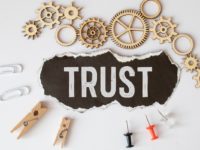Lately, I have been writing and speaking a lot about the massive opportunities for SMEs in Government purchasing. All levels of Government have now set targets for how much of their purchasing money they will spend with SMEs.
Yes, there are huge opportunities available. For example, the Queensland Government will be spending up to $180 billion with SMEs in the lead-up to the 2032 Olympics. That’s an awful lot of low-hanging fruit!
But, before you rush in, you must understand that dealing with big buyers like Government is different. You may have to adjust to a whole new way of doing business. Understanding this at the outset will save you a lot of time and angst – and possibly money as well.
This post will point out six things need to think about before you pursue some of those Government $$.
1. Understand supply chains
The first concept that you need to understand is that you become a link in their “supply chain”. Governments have hundreds of thousands of suppliers. Each one, including your small business, has their own suppliers, forming a “supply chain”. Even if you are supplying directly you are still considered to be a part of the supply chain.
As with any chain, if one link breaks, the entire chain fails. The buyer get their required products or services so they can’t supply their customers, who in turn become very, very unhappy.
2. Don’t be the weak link
The scenario above illustrates the one, underlying principle that you need to understand if you’re going to be successful as a supplier to big buyers. They hate risk.
You must be able to demonstrate convincingly that your small business is not going to be that weak link. If you can do that, you will be well ahead of your competitor who hasn’t been able to give them the same level of comfort.
3. DIFOTQ
Your potential buyer is also worried that you won’t be able to supply on time, and whether you can supply the same product or service, to the same standard, every time.
All these concerns come together in an acronym: DIFOTQ – Delivered In Full, On Time, with Quality. The “Q” doesn’t mean the best available. It means fit for purpose and consistent, and this is how your larger competitors often win contracts. Their larger size and capacity allows them to supply consistently. It may be consistently lower quality than your small business can provide, but it is consistent, and they can deliver every time.
4. Your financial health
If a supplier collapses due to financial distress, the buyer’s supply chain will be interrupted. As well as the threat of non-supply, they have to find an alternative, reliable supplier. Consequently, many big buyers will ask you for your company’s past financials so they can assess its financial health.
5. Their financial policies
The odd thing about your potential big customer wanting to forensically examine your financials is that their payment policies sometimes seem to be designed to make your finances worse! Governments have previously figured prominently in the late-payer stakes, and they are by no means perfect. However, many have now mandated shorter payment terms for SMEs.
6. Be prepared
Being a Government supplier can certainly be a game-changer, but before you get too excited, make sure you are prepared. They have requirements around environmental performance, ethics, and all sorts of other things. Do your homework first, and the rewards are there to be had.
So, there are the first six items you must tick off before you start on your Government purchasing journey. It’s not hard, but it does require a little time and work. But the rewards can be well worth the effort. Where are you going to start?












